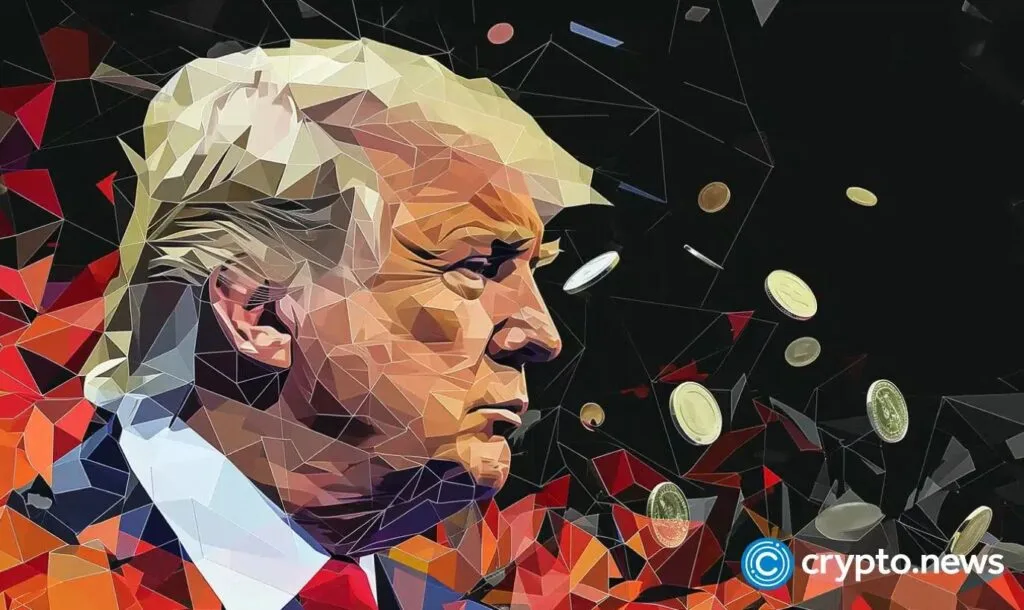The Trump family’s latest business venture, initially branded as “The Defiant Ones” and now known as World Liberty Financial, is already surrounded by controversy just days after its announcement. The platform is being promoted by Trump’s eldest sons, Eric Trump and Donald Trump Jr., who serve as “ambassadors” for the initiative. However, reports reveal connections to individuals involved in Dough Finance, a liquidity protocol that suffered a flash-loan attack, losing $1.8 million in Ethereum and USD Coin on July 12.
Zachary Folkman and Chase Herro, the founders of Dough Finance, are now part of the Trump-led venture. They have also been associated with other companies, including Date Hotter Girls LLC and the crypto-focused Pacer Capital. Trump first endorsed the project on August 22 via Truth Social and reiterated his support on August 29, by which time it had been rebranded as World LibertyFi.
Shortly after the announcement, the X accounts of two family members, including Lara Trump, co-chair of the Republican National Committee, were hacked and used to promote a fraudulent Solana-based memecoin. This incident raised eyebrows, particularly among crypto venture capitalists like Nic Carter, who criticized the initiative as a potential cash grab by Trump’s inner circle that could damage relationships with the crypto community.
Carter remarked, “It looks like Trump’s inner circle is just cashing in on his recent embrace of crypto in a kind of naive way,” emphasizing the risk of eroding goodwill within the industry.
While some prominent figures in crypto have faced legal troubles—such as former Binance CEO Changpeng Zhao and FTX founder Sam Bankman-Fried—Trump is no stranger to business-related controversies, including the Donald J. Trump Foundation and Trump University. Notably, he is also the first former U.S. president to be convicted of felony crimes.
In the lead-up to the 2024 presidential election, Trump has begun integrating pro-crypto policies into his campaign rhetoric. He was the first major political candidate to accept crypto donations and has made bold promises, including the establishment of a government-backed crypto reserve and the removal of Gary Gensler, the current chair of the SEC, who has faced criticism from the crypto community.

Trump’s pivot towards crypto garnered significant support from high-profile backers like Cameron and Tyler Winklevoss, founders of the Gemini exchange, who each contributed $1 million in Bitcoin to the former president. However, this shift has also attracted the attention of fraudsters, who have targeted his “MAGA” base with fake cryptocurrency websites and deceptive donation schemes. A London-based cybersecurity firm, Netcraft, reported in June that it had identified numerous fraudulent activities linked to the Trump campaign, including phishing attempts and bogus donation centers.
The recent scrutiny surrounding World LibertyFi and its associated coin, World Liberty Coin, reflects this ongoing issue. For weeks, the Trump brothers had teased a venture aimed at disrupting traditional banking, but the launch has provided ample opportunity for scammers to exploit.
Nic Carter, a crypto investor and supporter of Trump, cautioned that the World Liberty project could harm the Republican nominee’s electoral prospects, particularly in a tight race against Democratic Vice President Kamala Harris. He pointed out that the project could be seen as an enticing target for fraud, given its association with a protocol that has previously been hacked. Carter noted, “It’ll be the juiciest DeFi target ever… also an obvious target for the SEC.” He warned that the initiative could be “at best an unnecessary distraction” and “at worst a huge embarrassment and source of additional legal trouble.”



Bjr
Ok